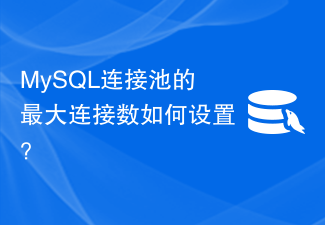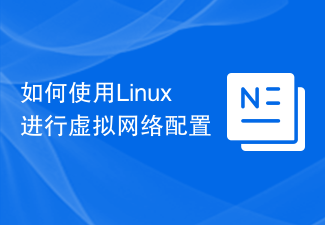 Backend Development
Backend Development Python Tutorial
Python Tutorial Pip mirror source configuration and usage tips: from beginner to expert
Pip mirror source configuration and usage tips: from beginner to expert
In the Python development process, Pip is a very commonly used package management tool. However, due to network environment and other reasons, using Pip to download and update packages may be slow or even errors may occur. To solve this problem, we can configure the Pip mirror source to increase download and update speeds. This article will introduce how to configure and use the Pip mirror source from beginner to master, and provide specific code examples.
1. What is Pip mirror source?
Pip mirror source refers to a service that mirrors Python packages from the official Python repository to other institutions. The most popular one is Tsinghua University’s open source mirror site (https://pypi.tuna.tsinghua.edu.cn/simple). These mirror sites will be updated when the official repository is updated, enabling fast download speeds and stable connections.
2. How to configure the Pip mirror source?
Below, we will introduce two common methods to configure Pip mirror source.
Method 1: Set the mirror source in the Pip configuration file
First, create a pip directory in the user's home directory, and then create a pip.conf file in the pip directory. This file is used to save Pip configuration information.
Add the following content to the pip.conf file to set the mirror source of Tsinghua University:
[global] index-url = https://pypi.tuna.tsinghua.edu.cn/simple
In addition, we can also add the -P parameter after the mirror source, Specify the number of threads to download the package to speed up the download:
[global] index-url = https://pypi.tuna.tsinghua.edu.cn/simple -trusted-host=pypi.tuna.tsinghua.edu.cn
Here, we tell Pip that the mirror station of Tsinghua University is trusted by adding the -trusted-host parameter to avoid untrusted warn.
Method 2: Directly specify the mirror source in the command line
Another method is to directly specify the mirror source in the command line:
pip install package_name -i https://pypi.tuna.tsinghua.edu.cn/simple
By adding the -i parameter , we can directly specify the mirror source to download the package. This method is suitable for one-time downloads.
3. Tips for using Pip mirror source
1. Update Pip and its dependent packages:
pip install --upgrade pip
2. Query the current version:
pip --version
3 .Before using Pip, we can update Python built-in packages faster:
pip install -U setuptools pip install -U wheel
4. Upgrade installed packages:
pip freeze | egrep -v '^#|^$' | xargs pip install -U
5. List installed packages and their versions Number:
pip freeze
6. Install the specified version of the package:
pip install package_name==version_number
7. Uninstall the package:
pip uninstall package_name
8. View the detailed information of the package
pip show package_name
4. Code Examples
The following are some actual code examples using Pip. We assume that the Tsinghua University mirror source has been configured.
1. Install Django framework:
pip install Django
2. Install requests package:
pip install requests
3. Install numpy package:
pip install numpy
4. Install scipy package :
pip install -i https://pypi.tuna.tsinghua.edu.cn/simple scipy
5. Upgrade the installed package:
pip freeze | egrep -v '^#|^$' | xargs pip install -U
6. Uninstall the package:
pip uninstall requests
So far, we have understood how to configure and use the Pip mirror source . By using a faster mirror source, we can obtain faster download and update speeds, thereby improving the efficiency of Python development.
The above is the detailed content of Pip mirror source configuration and usage tips: from beginner to expert. For more information, please follow other related articles on the PHP Chinese website!
 如何在Nginx配置Cookie安全策略Jun 10, 2023 pm 12:54 PM
如何在Nginx配置Cookie安全策略Jun 10, 2023 pm 12:54 PM随着互联网的不断发展和普及,Web应用程序已成为人们日常生活中必不可少的一部分,这也决定了Web应用程序的安全问题非常重要。在Web应用程序中,Cookie被广泛使用来实现用户身份认证等功能,然而Cookie也存在着安全风险,因此在配置Nginx时,必须设定适当的Cookie安全策略,以保证Cookie的安全性。下面是一些在Nginx中配置Cookie安全策
 使用CMake构建Linux内核的配置指南Jul 06, 2023 pm 02:46 PM
使用CMake构建Linux内核的配置指南Jul 06, 2023 pm 02:46 PM使用CMake构建Linux内核的配置指南概述在Linux开发中,构建和配置内核是一个重要的环节。对于大多数人来说,使用Kconfig和Makefile是最常见的配置方式。然而,使用CMake来构建和配置Linux内核也是一个灵活且强大的选择。本文将介绍如何使用CMake来构建和配置Linux内核,并附上一些代码示例。安装CMake首先,我们需要安装CMak
 MySQL连接池的最大连接数如何设置?Jun 30, 2023 pm 12:55 PM
MySQL连接池的最大连接数如何设置?Jun 30, 2023 pm 12:55 PM如何配置MySQL连接池的最大连接数?MySQL是一个开源的关系型数据库管理系统,被广泛应用于各种领域的数据存储与管理。在使用MySQL时,我们常常需要使用连接池来管理数据库连接,以提高性能和资源利用率。连接池是一种维护和管理数据库连接的技术,它能够在需要时提供数据库连接,并在不需要时回收连接,从而减少了连接的重复创建和销毁。而连接池的最大连接数则是连接池所
 使用GDB调试Linux内核的常用配置技巧Jul 05, 2023 pm 01:54 PM
使用GDB调试Linux内核的常用配置技巧Jul 05, 2023 pm 01:54 PM使用GDB调试Linux内核的常用配置技巧引言:在Linux开发中,使用GDB调试内核是一项非常重要的技能。GDB是一款功能强大的调试工具,可以帮助开发者快速定位和解决内核中的bug。本文将介绍一些常用的GDB配置技巧,以及如何使用GDB调试Linux内核。一、配置GDB环境首先,我们需要在Linux系统上配置GDB的环境。请确保你的系统已经安装了GDB工具
 Nginx错误页面配置,优雅处理网站故障Jul 04, 2023 pm 04:06 PM
Nginx错误页面配置,优雅处理网站故障Jul 04, 2023 pm 04:06 PMNginx错误页面配置,优雅处理网站故障在现代互联网时代,一个高度稳定和可靠的网站是任何企业或个人追求的目标。然而,由于各种原因,网站可能会经历故障或错误,这可能是由于网络问题、服务器问题或应用程序错误等。为了提供更好的用户体验和优雅地处理任何可能发生的错误,Nginx作为一个强大的Web服务器软件,不仅能够提供高性能的服务,还能够灵活地配置错误页面。在Ng
 如何通过宝塔面板进行UFW防火墙的配置Jun 21, 2023 am 09:08 AM
如何通过宝塔面板进行UFW防火墙的配置Jun 21, 2023 am 09:08 AM在Linux服务器上配置防火墙非常重要,它可以有效地保护服务器免受恶意攻击。在Ubuntu操作系统上,我们可以使用UFW防火墙来保护服务器的安全。在本文中,我们将介绍如何使用宝塔面板配置UFW防火墙。第一步:安装宝塔面板首先,我们需要在Ubuntu上安装宝塔面板。您可以在宝塔官网免费下载宝塔面板的安装包,然后在命令行中运行以下命令来安装宝塔面板:$wget
 如何使用Linux进行虚拟网络配置Jun 18, 2023 am 11:24 AM
如何使用Linux进行虚拟网络配置Jun 18, 2023 am 11:24 AM随着云计算、大数据和物联网等技术的日益普及,虚拟化技术成为了当今IT领域的热门话题。虚拟化是通过将一台物理主机划分为多个独立的虚拟机,实现资源的共享和管理的方法。虚拟网络是虚拟化的其中一个重要组成部分,能够满足不同应用之间的网络隔离和互动需求。在本文中,我们将介绍如何使用Linux进行虚拟网络配置。一、Linux虚拟网络的概述在物理网络中,网卡是连接网络设备
 Intel TXT的安装和配置步骤Jun 11, 2023 pm 06:49 PM
Intel TXT的安装和配置步骤Jun 11, 2023 pm 06:49 PMIntelTXT(TrustedExecutionTechnology,可信执行技术)是一种硬件帮助保护系统安全的技术。它通过使用硬件测量模块(TPM)来确保系统启动过程中的完整性,并且可以防止恶意软件攻击。在本文中,我们将讨论IntelTXT的安装和配置步骤,帮助你更好地保护你的系统安全。第一步:检查硬件要求安装IntelTXT前,需要先检查计算


Hot AI Tools

Undresser.AI Undress
AI-powered app for creating realistic nude photos

AI Clothes Remover
Online AI tool for removing clothes from photos.

Undress AI Tool
Undress images for free

Clothoff.io
AI clothes remover

AI Hentai Generator
Generate AI Hentai for free.

Hot Article

Hot Tools

EditPlus Chinese cracked version
Small size, syntax highlighting, does not support code prompt function

MantisBT
Mantis is an easy-to-deploy web-based defect tracking tool designed to aid in product defect tracking. It requires PHP, MySQL and a web server. Check out our demo and hosting services.

Safe Exam Browser
Safe Exam Browser is a secure browser environment for taking online exams securely. This software turns any computer into a secure workstation. It controls access to any utility and prevents students from using unauthorized resources.

Dreamweaver CS6
Visual web development tools

PhpStorm Mac version
The latest (2018.2.1) professional PHP integrated development tool





